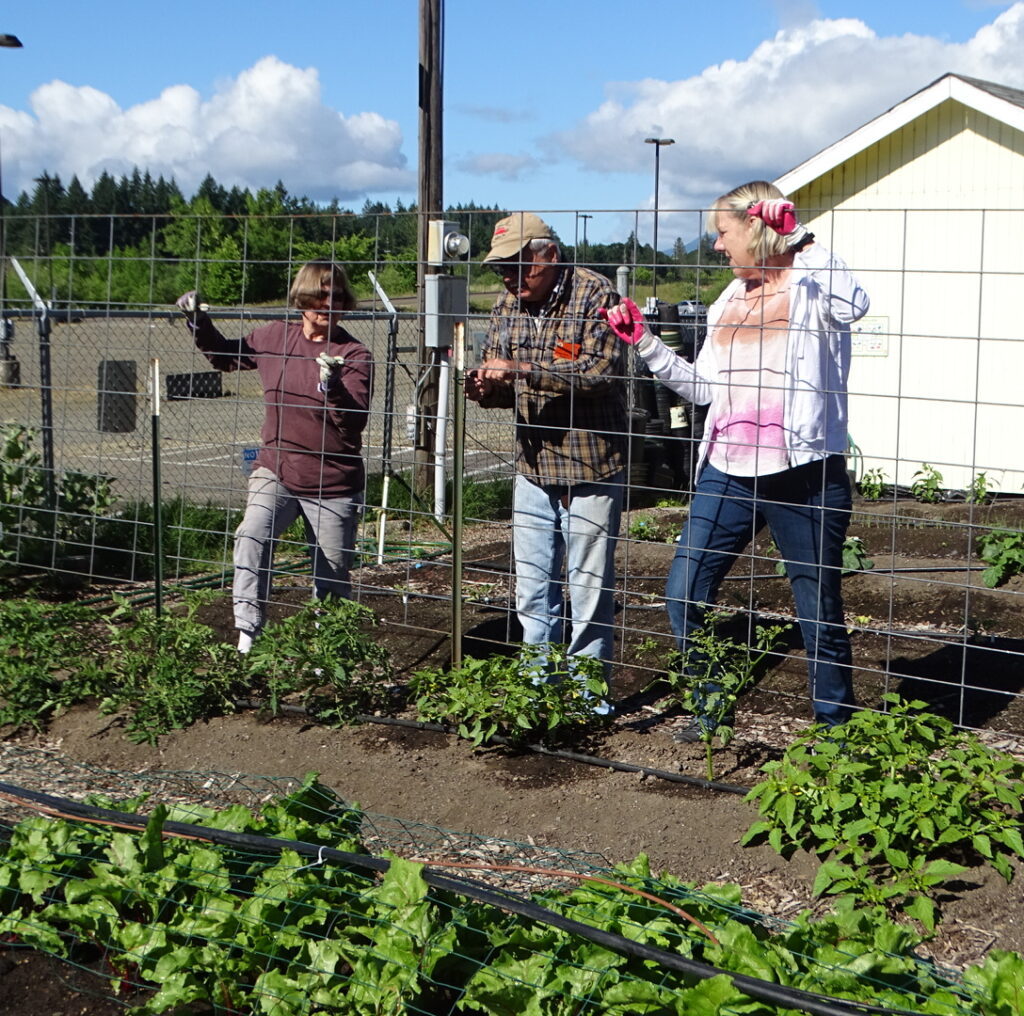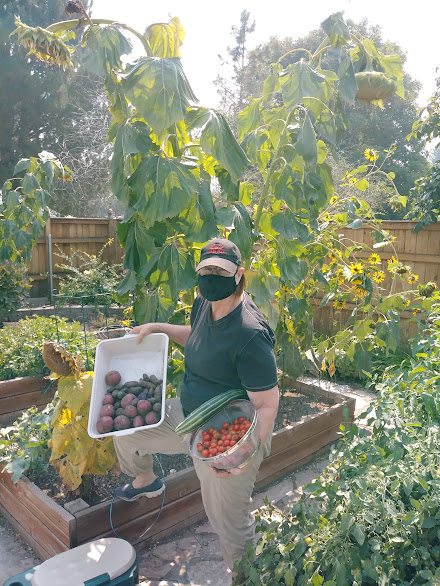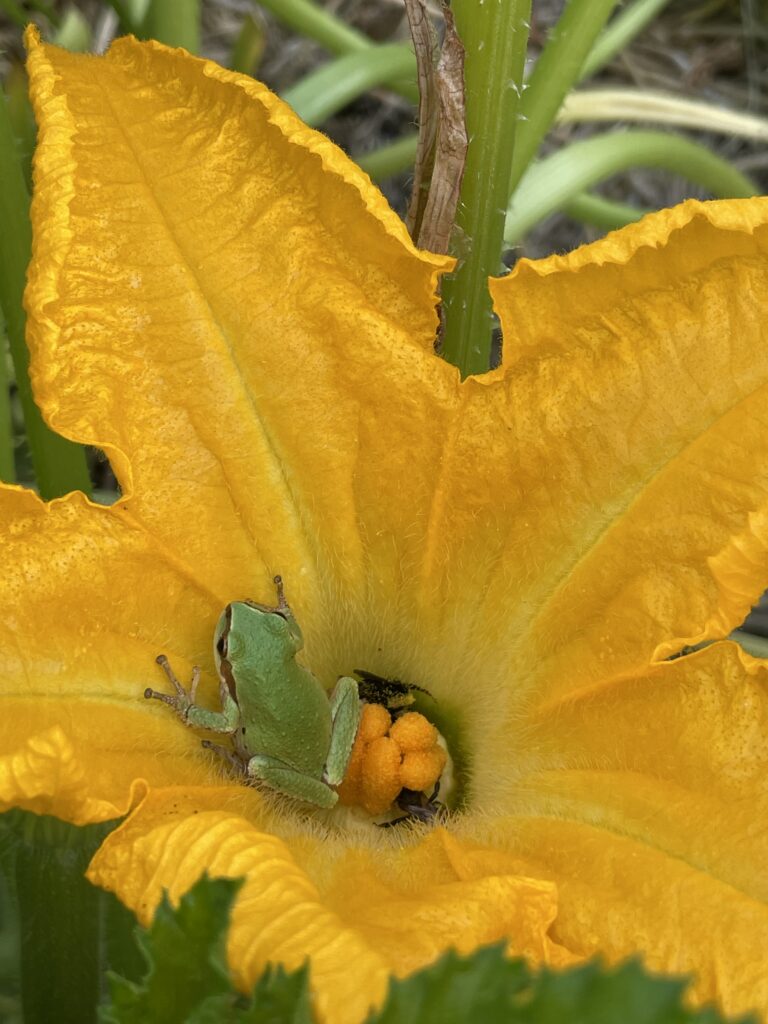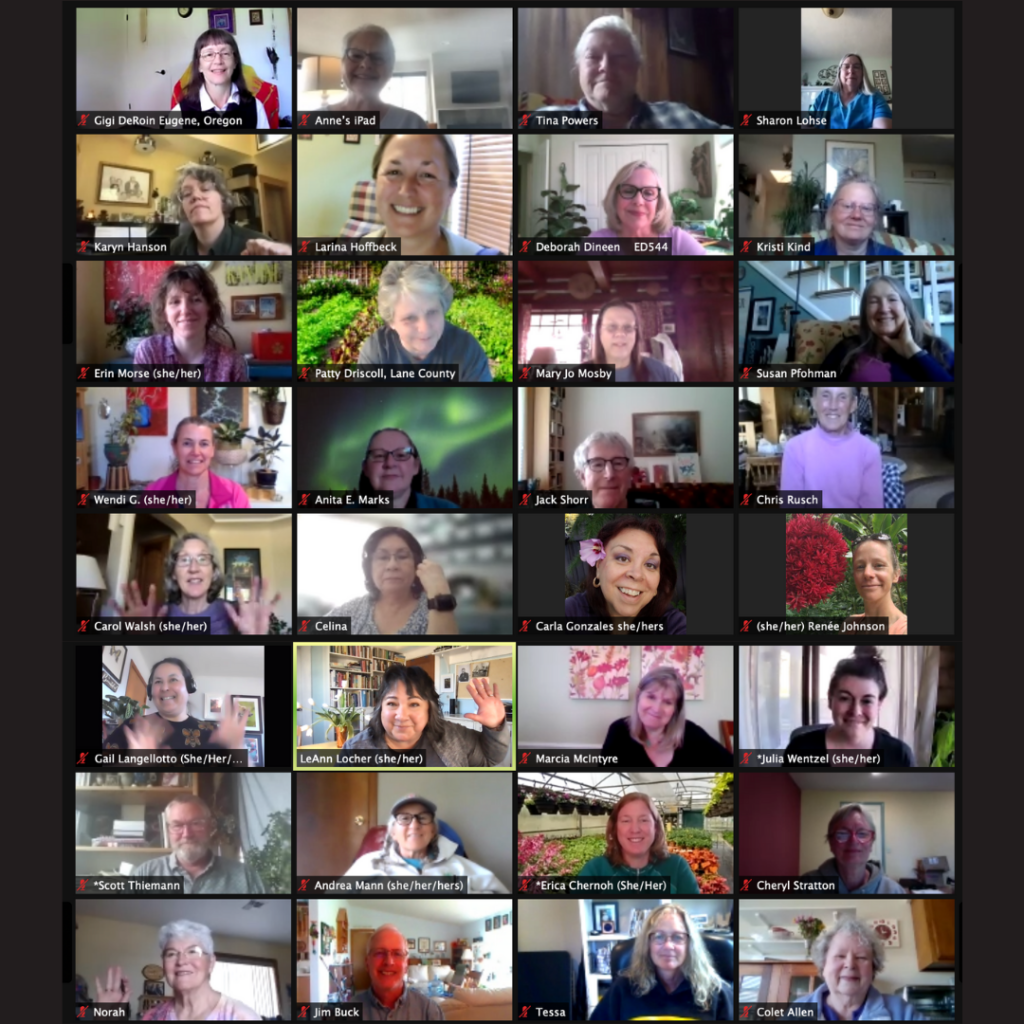Gardeners in Oregon saw what climate change looks like last summer: widespread leaf scorch and leaf drop from trees, bees at risk from heat stress, and plants succumbing to a record-breaking “heat dome”. Dr. Vivek Shandas saw it too, and on the hottest day of the year he set out with his son to measure air and ground temperatures in some of Portland’s most vulnerable communities. His research on climate adaptation and climate justice shows that how people fare during extreme heatwaves is in large part dictated by where they live. Halfway around the globe, Anita Chitaya lives with climate change in Malawai, as a farmer and community activist. She traveled to America to speak with farmers, growers, community organizers, and politicians about climate change and how we can work together to reduce its rapid trajectory.

Movie and Discussion: The Ants and the Grasshopper, and a climate change discussion for gardeners with Vivek Shandas
Join us for the 40th anniversary of OSU’s Martin Luther King, Jr. Day of Service, when we will gather virtually to reflect upon environmental justice as a component to achieving social justice. We will watch the documentary that chronicles Anita Chitaya’s story, “The Ants and the Grasshopper”. Afterward, stay for a live discussion with Dr. Vivek Shandas about climate change effects on vulnerable communities, the intersection of climate change and social justice, and what role gardeners can play to promote healthier living environments for all.
When: Monday, January 17, 2022, 6pm movie, 7:15 pm discussion
Where: Online, via Kinema
About the movie, The Ants and the Grasshopper : How do you change someone’s mind about the most important thing in the world? Anita Chitaya has a gift: she can change farmers’ minds about what to grow, she can change what people love to eat, and she can even persuade men to fight for gender equality. Now, to save her home in Malawi from extreme weather, she faces her greatest challenge: persuading Americans that climate change is real.
About Dr. Vivek Shandas: Vivek Shandas is a Professor in the College of Urban and Public Affairs at Portland State University. His work focuses on developing strategies for addressing the implications of climate change on cities. His teaching and research examine the intersection of exposure to climate-induced events, governance processes, and planning mechanisms. As the Founder and Director of the Sustaining Urban Places Research (SUPR) laboratory at PSU, he brings a policy-relevant approach to research, including the evaluation of environmental stressors on human health, developing of indicators and tools to improve decision making, and the construction of frameworks to guide the growth of urban regions. Over the past several years, research from the SUPR Lab has appeared in the Smithsonian Magazine, National Public Radio, Washington Post, Minnesota Public Broadcasting, NY Times, Qatar Times, and several other national and international media.
About this event: The OSU Extension Master Gardener program is sponsoring this event as one small part of OSU’s 40th Annual Martin Luther King, Jr. Day of Celebration. This event is open to all gardeners, including Master Gardener volunteers, and is intended to provide an opportunity to reflect on Dr. King’s legacy, and our programmatic commitments to diversity, equity, and inclusion, as well as climate change.
How to access this event: Tickets are free but require registration. Once you register at Kinema you’ll be provided sign-in information from Kinema. You must view the movie and discussion through Kinema at the time this event is scheduled.
While this event is in the evening, Master Gardeners are encouraged to use their day of service.
Here are some ideas:
- Make your commitments for the year to teach and reach gardeners who are underserved by our services
- Make seed tape or mason bee houses to donate to your local community garden or school garden
- If your Master Gardener Association hosts an annual plant sale, include plant donations to your local community garden or school garden in your propagation plans
- For Master Gardener coordinators and local association leadership, connect to your local SNAP-Ed educator in your Extension office and ask “What can we do?”
- Commit to supporting your local SNAP-Ed educator in every county, as a support to our joint Food Hero and Grow This! program.
- Commit to planning a workshop that broadens community outreach. Plan for an event with childcare in conjunction with a community partner whose work you want to support.
- Make plans and commitments for 2022 to explore the connection of gardeners to combat climate change as a form of environmental justice. Explore the intersection of those most vulnerable to climate change and climate change, and what gardeners can do to better connect these.
What are your ideas as gardeners for being of service to community on MLK Day? We’d love to hear them.



















